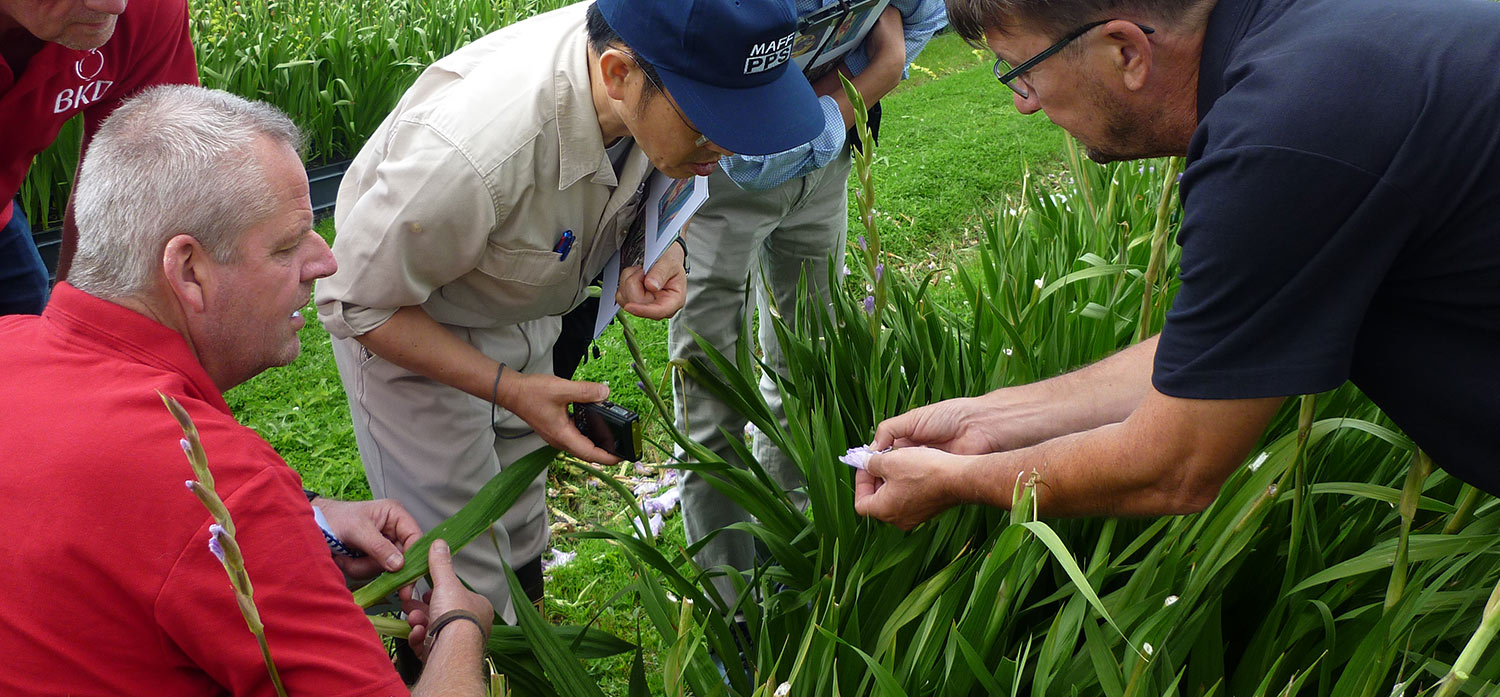
THE FIELD INSPECTION
The field inspection
The field inspection is a mandatory inspection for all lots of flower bulbs. During a field inspection, our inspectors walk through the growers’ bulb fields. They make a visual inspection of the crops, looking for any anomalies relating to viruses, species authenticity, quarantine organisms such as pathogens or damage etc. caused by animals. The inspectors are equipped for their inspection with details of the findings and provisional classification from any planting inspection and/or laboratory tests carried out.
A field inspection is a quality inspection that helps determine the classification assigned to the flower bulbs. Depending on the crop, the classification that the grower wishes to achieve for the lot and the selling options (e.g. export to third countries), the inspectors will visit a particular plot at least once and a maximum of three times during the season in order to assess a particular lot. The inspectors record the inspection results in the BKD’s inspection system.
The inspection and assessment of flower bulbs requires a great deal of specialist knowledge and experience. The BKD’s inspectors are fully trained and continually keep their knowledge ‘up to scratch’.
Soil sampling
The BKD’s inspectors also provide ‘AM’ (Aardappelmoeheid/potato cyst nematode disease) soil sampling services, this in collaboration with NAK (the Dutch General Inspection Service). The soil materials are then tested in NAK’s accredited laboratory. When the BKD has carried out the soil sampling, the BKD will give the grower an AM file number that can be used to register the lots of flower bulbs that are grown on that plot of land. Click here to read more about the ‘AM’ potato cyst nematode disease (NL information).



